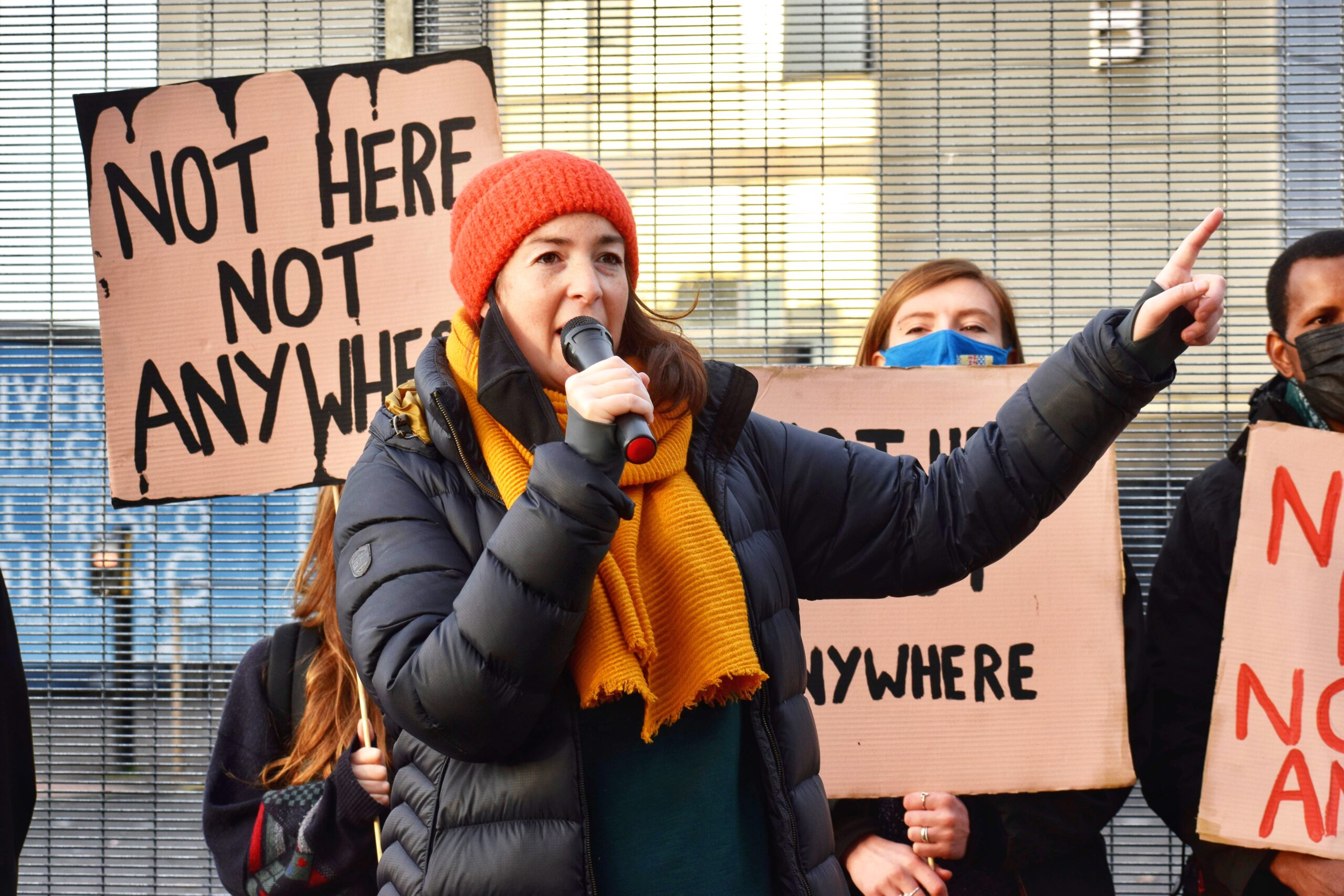
Fracking Map Shows Communities at Risk Across Scotland
The UK Government has today published a map of areas, including vast swathes of Scotland, that could be exploited for shale gas and coalbed methane extraction.
The maps have been published by the Department of Energy and Climate Change as part of a strategic environmental assessment into its plans to offer licenses for onshore oil and gas extraction later this year. The Government announcement also contained details of a voluntary industry initiative to offer communities up to £100,000 where shale gas drilling takes place.
Mary Church, Head of Campaigns at Friends of the Earth Scotland, said,
“Communities across Scotland will be alarmed to discover that despite growing evidence about the harmful impacts of unconventional gas drilling and fracking, the UK Government is determined to go ahead with plans to squeeze as much as they can out of some of the most populated parts of the country.
“If the industry think that offering money to communities with fracking in their back yards will put an end to growing resistance to this new source of fossil fuel, they are onto a loser. Communities facing these kind of developments here in Scotland and across the UK are already well connected to people around the world suffering from the immediate local environmental and health impacts of the industry, and they won't be bought off so easily.”
Church added, “It doesn’t matter how much shale gas and coalbed methane is under our feet because the fact is it isn’t safe to burn it. We already know of five times more fossil fuels than we can burn without causing catastrophic climate change, so it doesn’t make sense to keep looking for even more.
“We urge the Scottish Government not to be swayed by the UK Coalition's reckless dash for gas and focus instead on making the most of our abundant renewable resources, to ensure a cleaner, safer future for all.”
ENDS
Notes to Editors
1. DECC's announcement is available at https://www.gov.uk/government/speeches/publication-of-a-regulatory-roadm…. A map of the areas under consideration for onshore oil and gas development including shale gas and coalbed methane is on page xi of the Strategic Environmental Assesment consultation at https://www.gov.uk/government/uploads/system/uploads/attachment_data/fil…
2. DECC started the SEA process for the 14th round of onshore licensing in 2010, but this was stalled following the earth tremors at Cuadrilla's fracking site in Lancashire. DECC undertook to re-do the SEA process 'in light of new information arising' regarding unconventional gas extraction, and it is this document that has been published today https://www.gov.uk/oil-and-gas-licensing-rounds#th-licence-round-1
3. In September the Intergovernmental Panel on Climate Change’s (IPCC) fifth assessment report, confirmed that human activity, in particular burning fossil fuels, is causing climate change: http://www.climatechange2013.org/images/report/WG1AR5_SPM_FINAL.pdf
4. The United Nations Environment Programme has described the unconventional gas industry as having “unavoidable environmental impacts”. It notes that:
“Some risks result if the technology is not used adequately, but others will occur despite proper use of technology. UG production has the potential to generate considerable GHG emissions, can strain water resources, result in water contamination, may have negative impacts on public health (through air and soil contaminants; noise pollution), on biodiversity (through land clearance), food supply (through competition for land and water resources), as well as on soil (pollution, crusting).” UNEP Global Environmental Alert System 2012 http://www.unep.org/pdf/UNEP-GEAS_NOV_2012.pdf
5. Australian company Dart Energy is the leading unconventional gas developer in Scotland. Dart’s flagship development at Airth, near Falkirk faces strong community opposition and has been beset by delays. In June 2013 Dart appealed their application for 22 new wells, a gas and water treatment facility and a network of pipelines to the Scottish Government on grounds of non-determination. A Public Inquiry process has started and will examine the application in March 2014. Dart also plan to drill for coalbed methane at Canonbie, where the company has planning permission for wells at 19 sites; it also has a further two licenses to explore large areas in Fife. Another company “Reach Coal Seam Gas” is hoping to develop coalbed methane in North Lanarkshire, where it has a license to explore a large area. However, the company recently withdrew a planning application for a development at Moodiesburn, following significant public opposition.
6. Bans and moratoria around the world
France: A nationwide ban on fracking
Switzerland: A moratorium on fracking was introduced in the canton of Fribourg
Germany: Moratorium in Northrhine-Westphalia on fracking. Lower Saxony likely to do the same.
Bulgaria: Government banned fracking
Czech Republic: A moratorium on fracking, considering outright ban
Spain: Cantabria banned fracking, La Rioja is also currently considering same
Netherlands: Moratorium on unconventional fossil fuels
Denmark: Moratorium on fracking
Quebec: A moratorium on fracking
United States: Vermont banned fracking, and New York has moratorium
New South Wales: ban on any coal bed methane activity within 2km of residential areas, and within critical industry clusters such as winegrowing areas
Ireland: 2-year moratorium on fracking
7. Friends of the Earth Scotland is:
* Scotland's leading environmental campaigning organisation
* An independent Scottish charity with a network of thousands of supporters and active local groups across Scotland
* Part of the largest grassroots environmental network in the world, uniting over 2 million supporters, 77 national member groups, and some 5,000 local activist groups – covering every continent.
